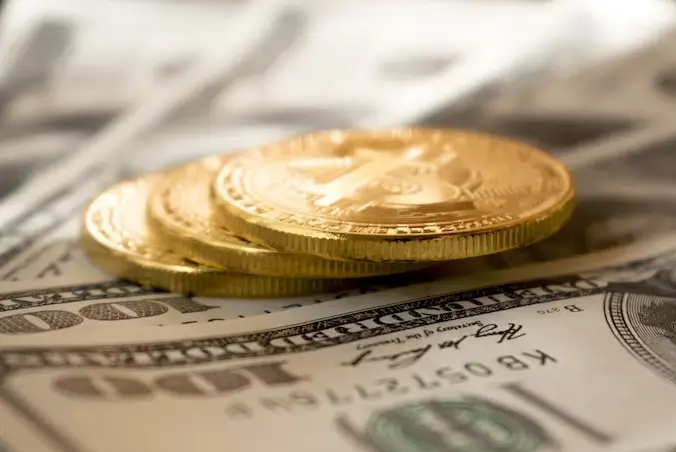The latest data from the International Monetary Fund shows the rate at which nations are diversifying away from the use of the US dollar in international trade settlement is accelerating.
The Washington-based institution released statistics showing that the dollar’s share of official gold and foreign currency reserves have fallen to an almost three-decade low of 58% during the fourth quarter of 2022.
The transition has been gradual, as the dollar’s share of the foreign reserves belonging to central banks has fallen to a level last seen in 1995.
In recent years, the longstanding dominance of the dollar’s use as a global currency has gradually eroded amid fears over the ballooning of the national debt of the United States, as well as worries over the use of the currency as political leverage through the implementation of sanctions on nations to restrict their economic activity.
In an interview with Reuters, Stephen Jen, CEO of Eurizon SLJ Capital Limited, noted that the shift is even more pronounced when it is adjusted for exchange rates.
He said, “What happened in 2022 was a very sharp plummeting in the dollar share in real terms,” noting that the decline was a reaction to the United States freezing $640 billion in Russian gold and FX reserves.
Jen went on to explain that the extreme nature of the sanctions caused nations like Saudi Arabia, China, India and Türkiye to suddenly consider diversifying their reserves into other currencies, and to become more open to alternative ways to settle cross-border trade obligations.
One beneficiary has been the yuan. According to the Bank of International Settlements, (BIS), its share of global over-the-counter forex transactions is up from almost zero a decade and a half ago, to 7%.
BNY Mellon strategist Geoffrey Yu noted than after Russia was suddenly cut off from its reserves, and unable to settle its trade obligations in dollars, other countries began to wonder, “What if you fall on the wrong side of sanctions?”
He noted that central banks are now looking to diversify their assets, acquiring corporate debt, tangible assets like real estate, and other currencies.
Mark Tinker, managing director of Toscafund Hong Kong, said, “This is the process that is underway. The dollar is going to be used less in the global system.”

